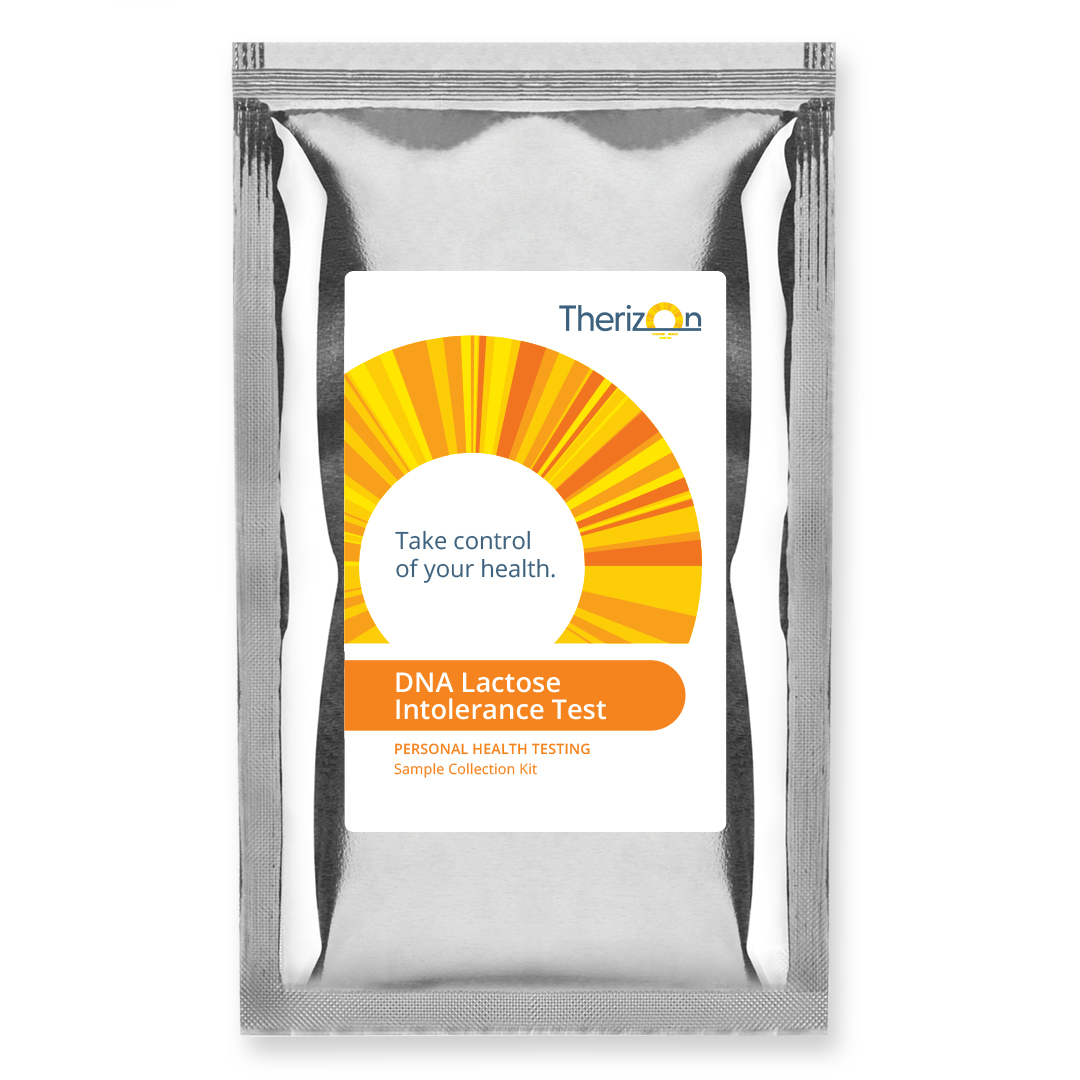DNA Lactose Intolerance Test
Determine if you are at risk of lactose intolerance with the DNA Lactose Intolerance test.
- Find out if you can digest lactose in adulthood
- Painless buccal (mouth) swab sample collection
- All tests are run 2x for absolute accuracy
- Quickly collect samples in the privacy of your own home
- 24/7 online test status check
- No age limit
- State-of-the-art accredited testing laboratory
$149.00
Detailed Description
Are you at risk of lactose intolerance?
Did that milkshake leave you with abdominal cramps and nausea?
And last night’s ice cream dessert caused embarrassing flatulence?
Maybe you are one of the unlucky individuals who cannot digest lactose in adulthood.
What is lactose intolerance?
Lactose intolerance is the reduced ability to digest and absorb the milk sugar lactose, due to decreased production of the lactase enzyme. This causes digestive symptoms like gas, bloating and diarrhea. This may be a temporary reduction of lactase (e.g. after surgery or illness) or a permanent reduction, often due to genetic variation.
What is lactase persistence?
Lactase persistence is the opposite to lactose intolerance. Lactase persistent individuals are able to produce the lactase enzyme for their entire lives, meaning they can continue to consume dairy products right through adulthood.
Genetic variation is the strongest predictor of lactose intolerance and lactase persistence. A simple mouth swab is all we need to analyze your DNA and determine whether you are at increased risk of lactose intolerance.
The Genetics
Genetics of lactose intolerance and lactase persistence
Five genetic variants in the regulatory MCM6 gene are the most common genetic variations allowing for lactase persistence. The MCM6 gene encodes a protein that controls the production of other proteins, including lactase, encoded by the nearby LCT gene.
Individuals with at least one of these variants are unlikely to suffer from lactose intolerance, while individuals that do not carry any of these variants have an increased risk of lactose intolerance.

The lactase enzyme is responsible for the digestion of the lactose sugar found in dairy products. Lactase is produced in the small intestine and breaks down lactose into two smaller and more readily absorbable sugars – glucose and galactose.
Lactose intolerance causes undigested lactose to build up in the large intestine, resulting in the growth of gas-producing gut bacteria. Symptoms include:
- Bloating
- Flatulence
- Diarrhea
- Nausea
- Vomiting
- Abdominal pain or cramps
- Gurgling and rumbling sounds from the abdomen
The likelihood of lactose intolerance depends on ethnicity. Intolerance is the wild type phenotype (the “norm”) and the variants providing lactase persistence occurred, and were selected for, when there was an increased reliance on dairy as a food source. Many ethnicities are predominantly lactose intolerant, including 90% of Asian Americans, 70% of African-Americans, 95-100% of Native Americans and 50% of Mexican-Americans. In contrast, less than 25% of Caucasians and only about 5% of people of Northern European ancestry are lactose intolerant, due to an increased reliance on dairy as a food staple in the past.
How it works
Step 1: Order test kit online
Step 2: Collect DNA sample using a painless mouth swab, and mail to the lab in the provided return envelope
Step 3: Receive your results online
